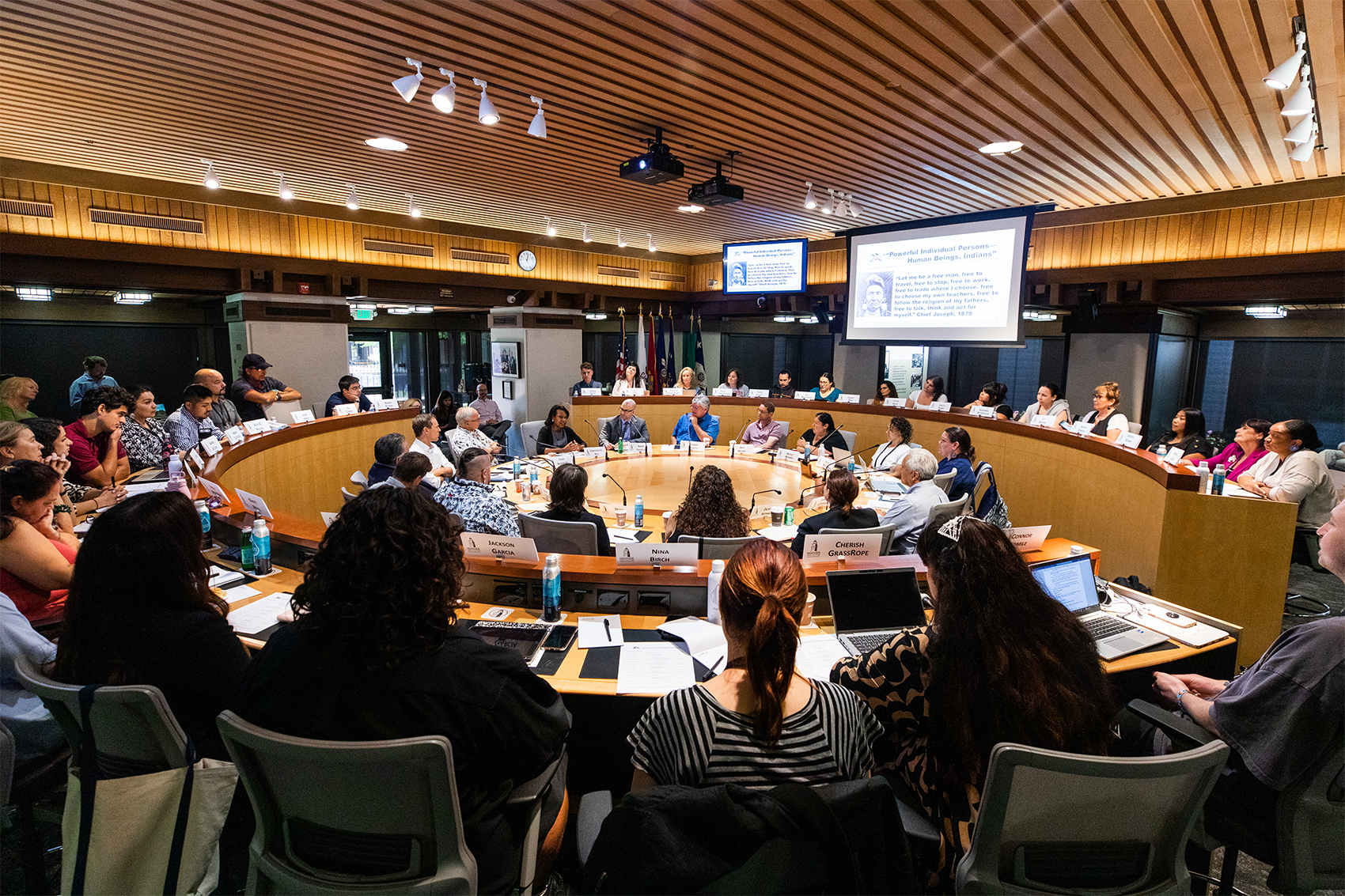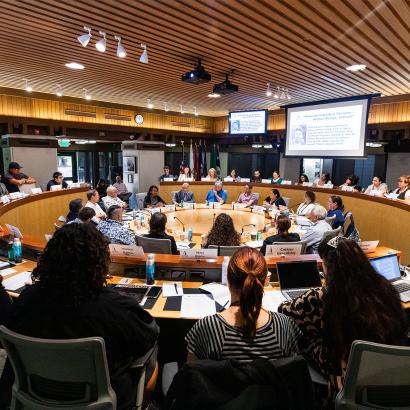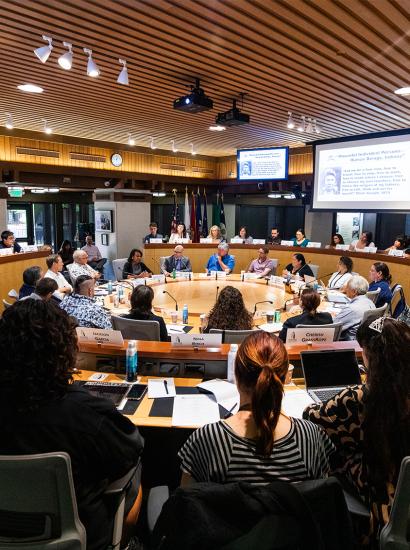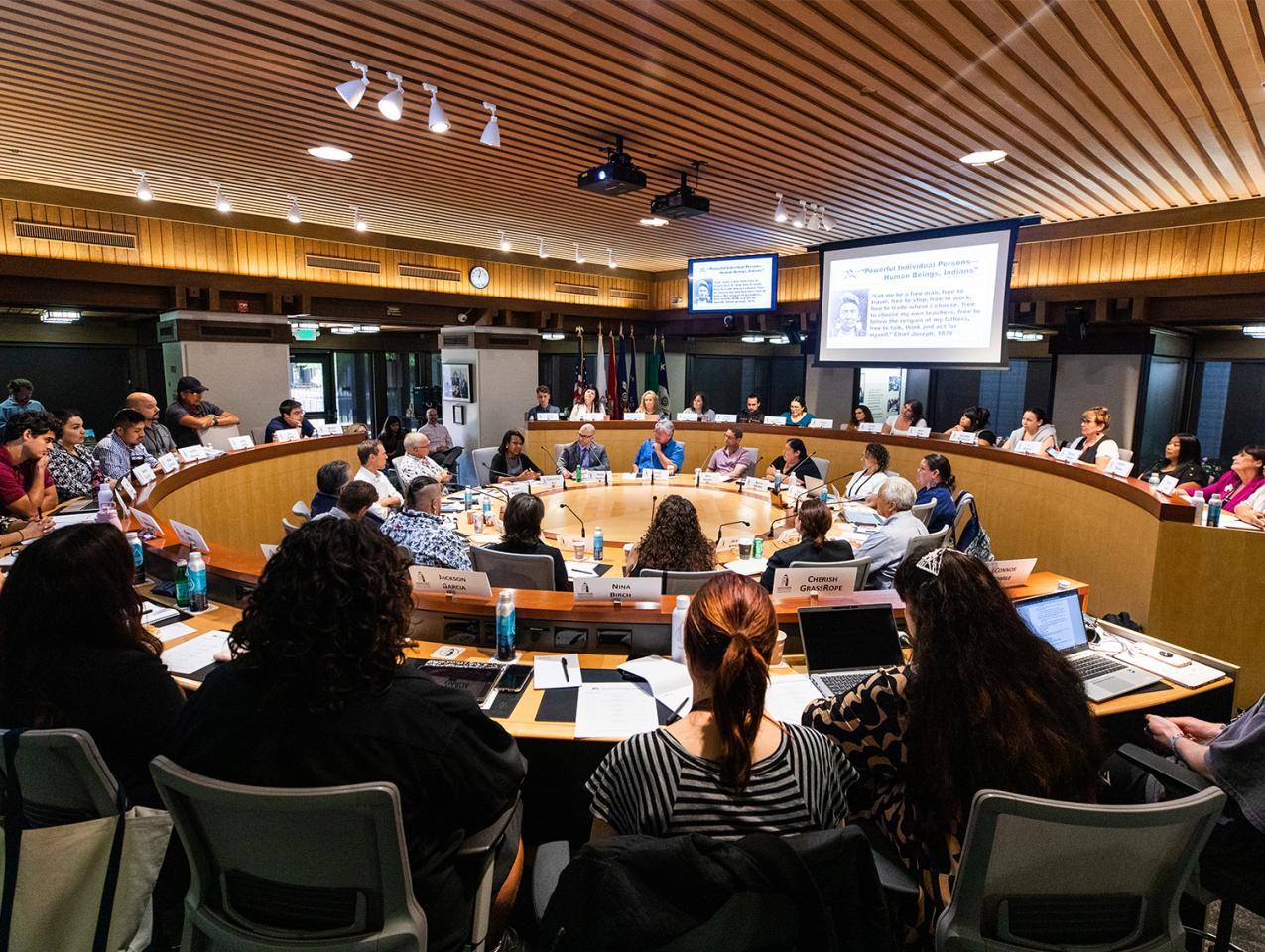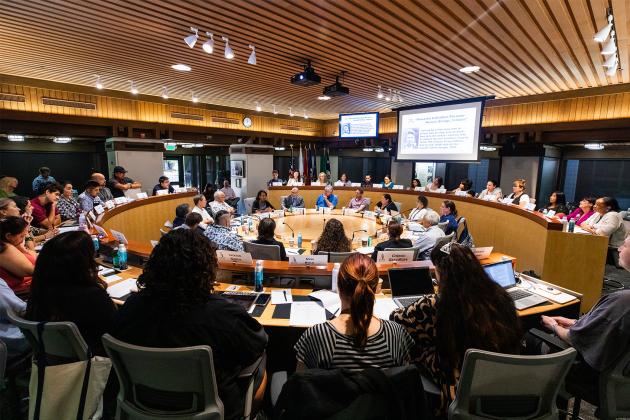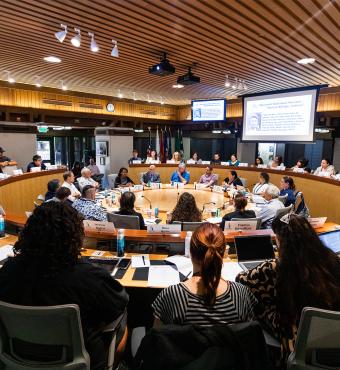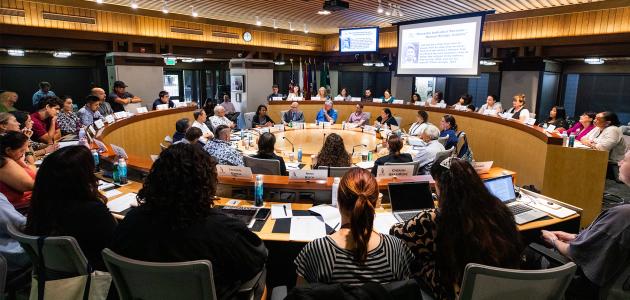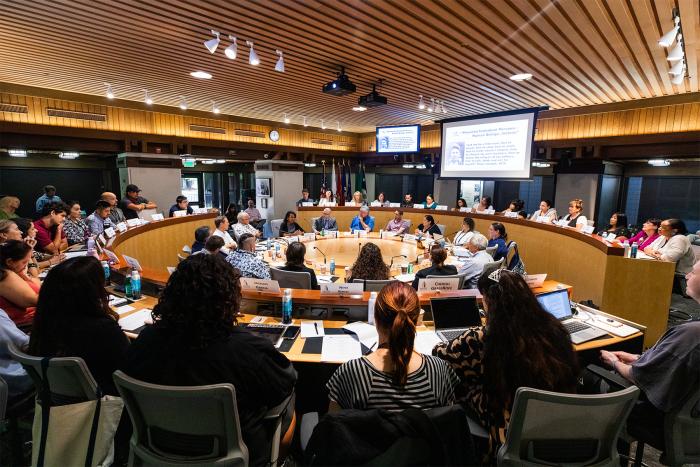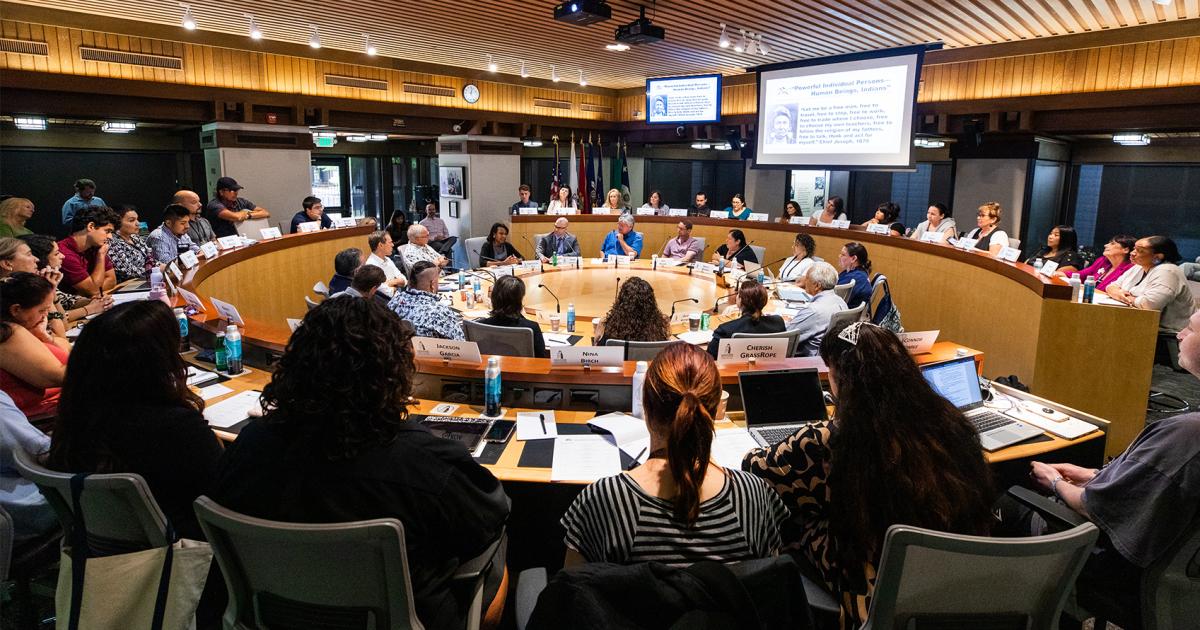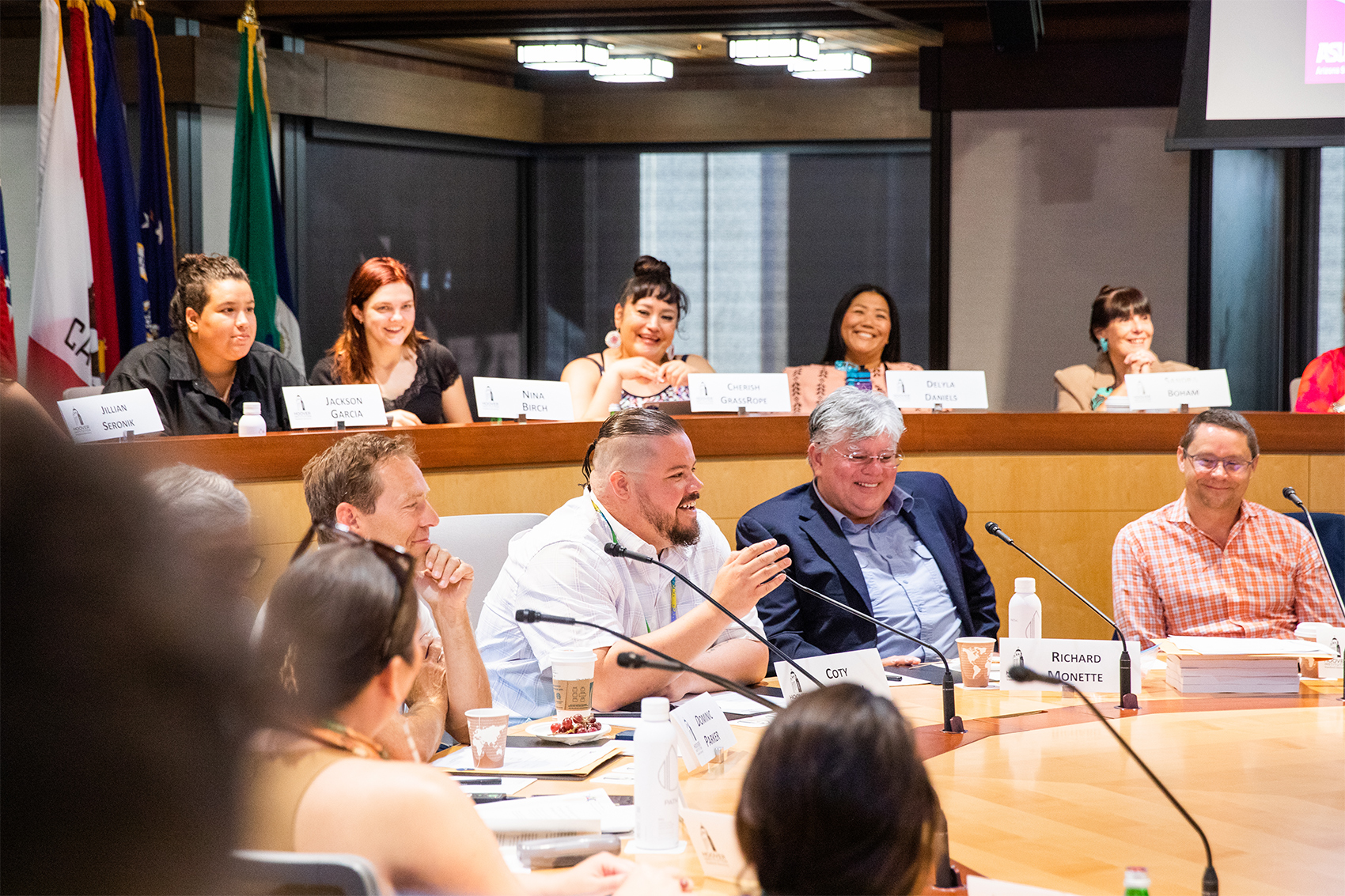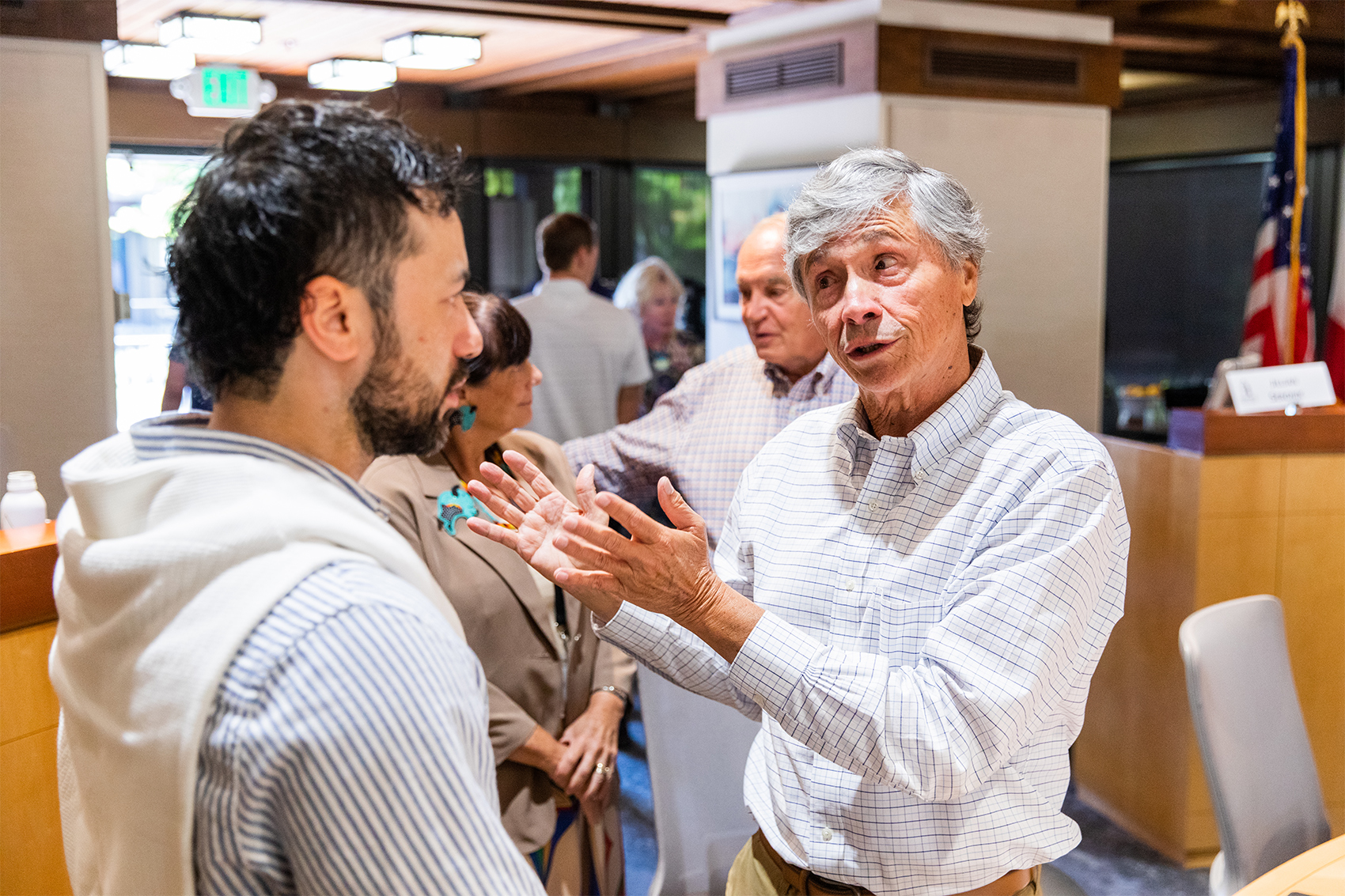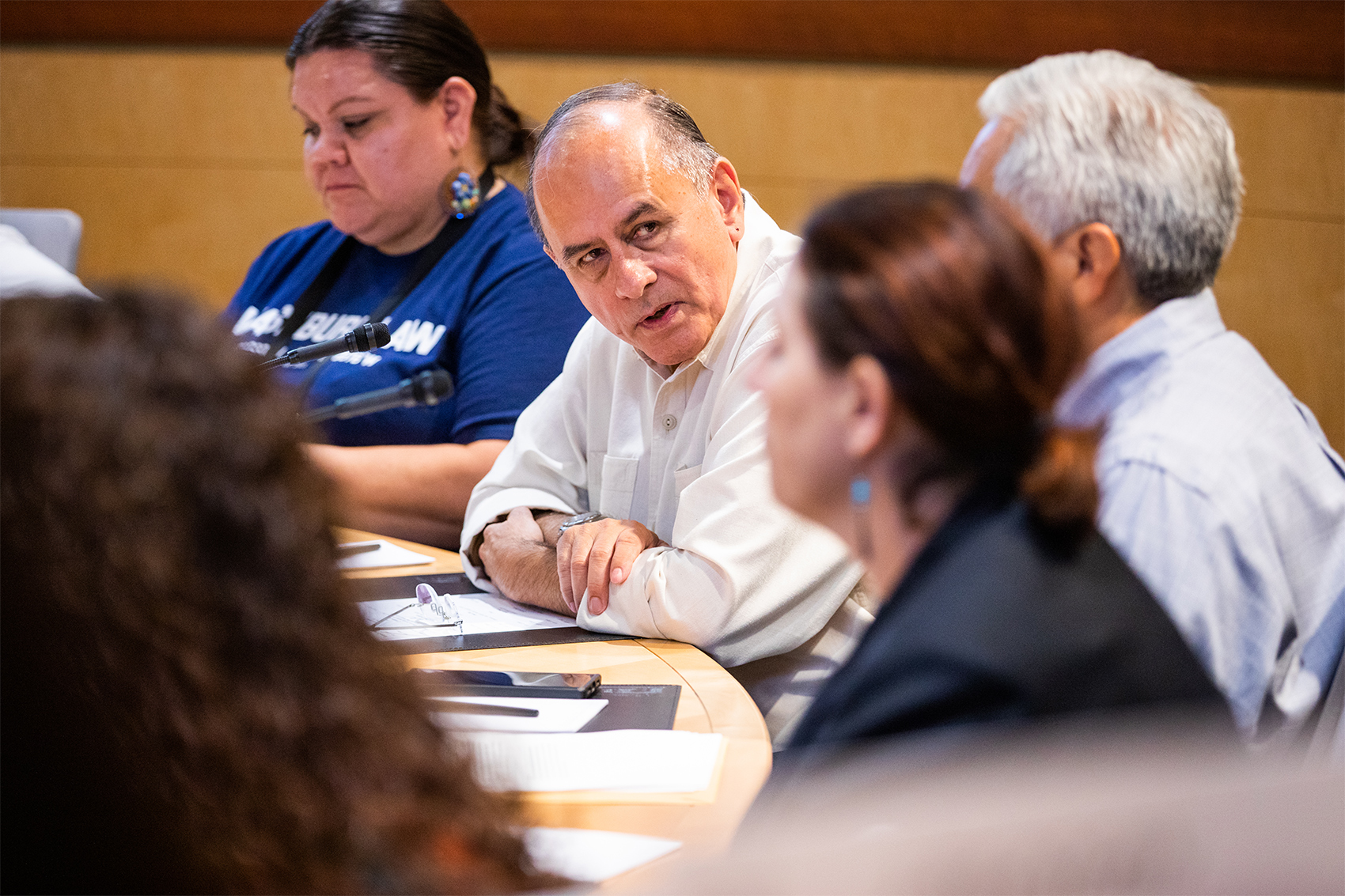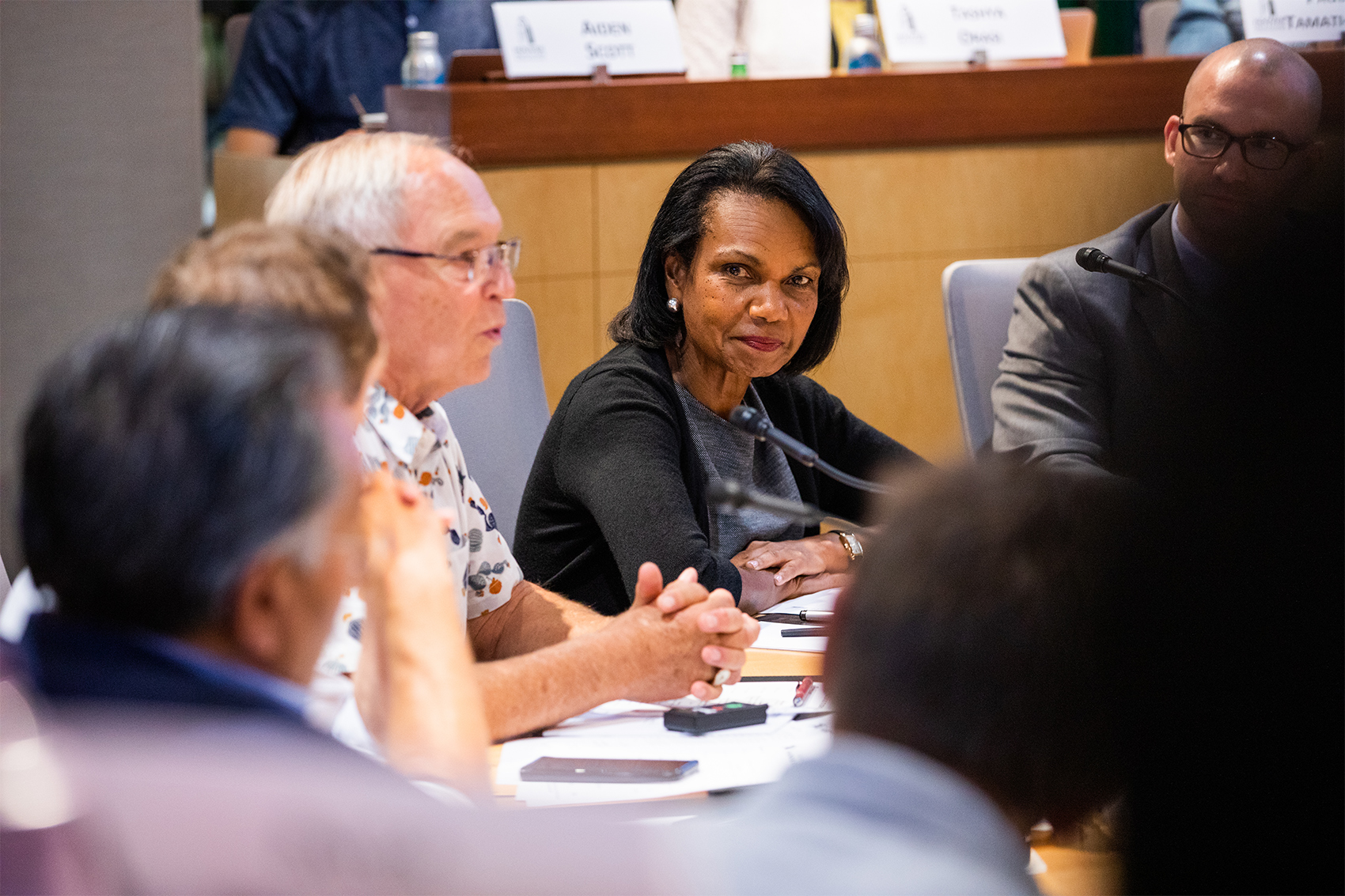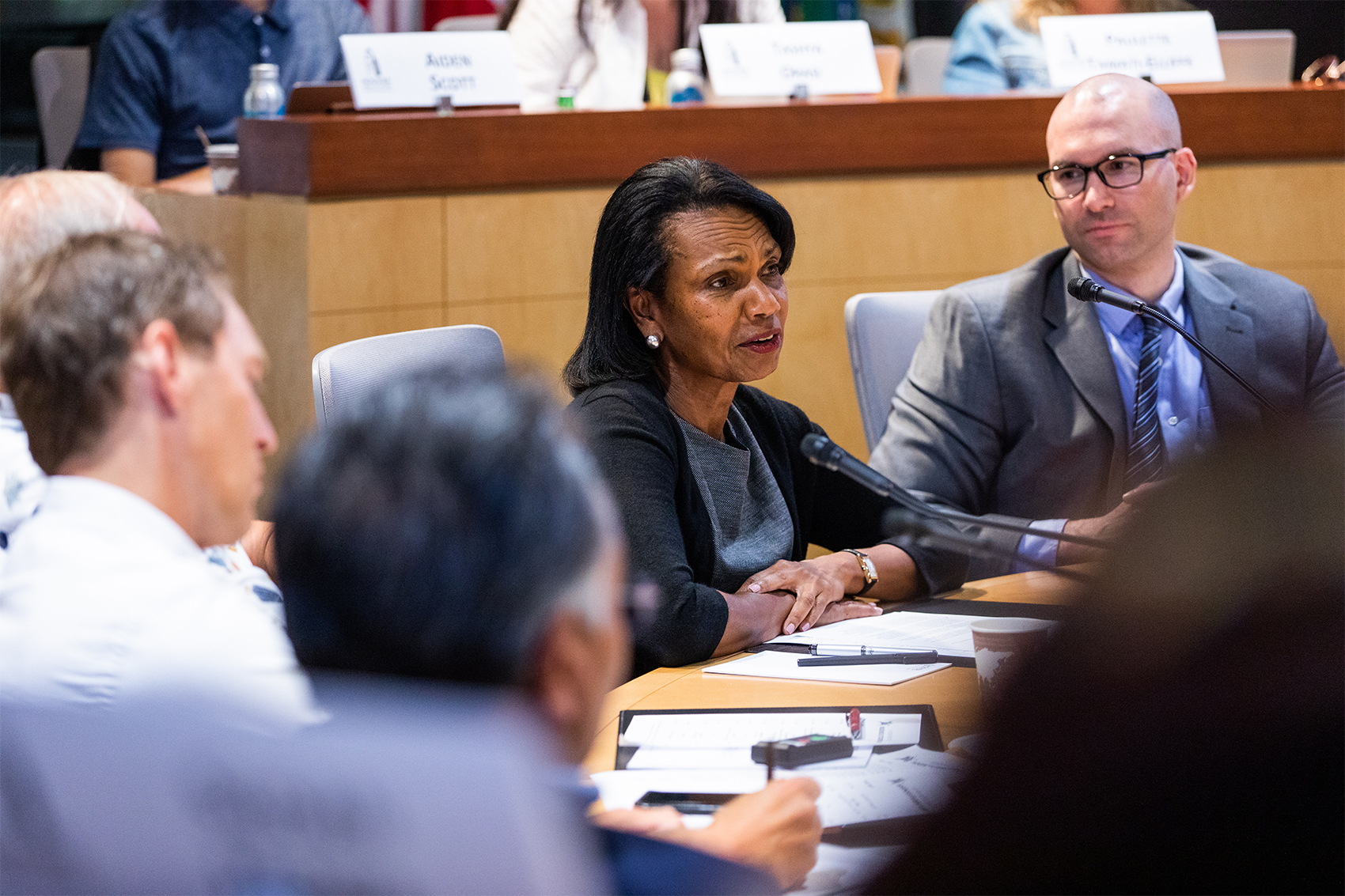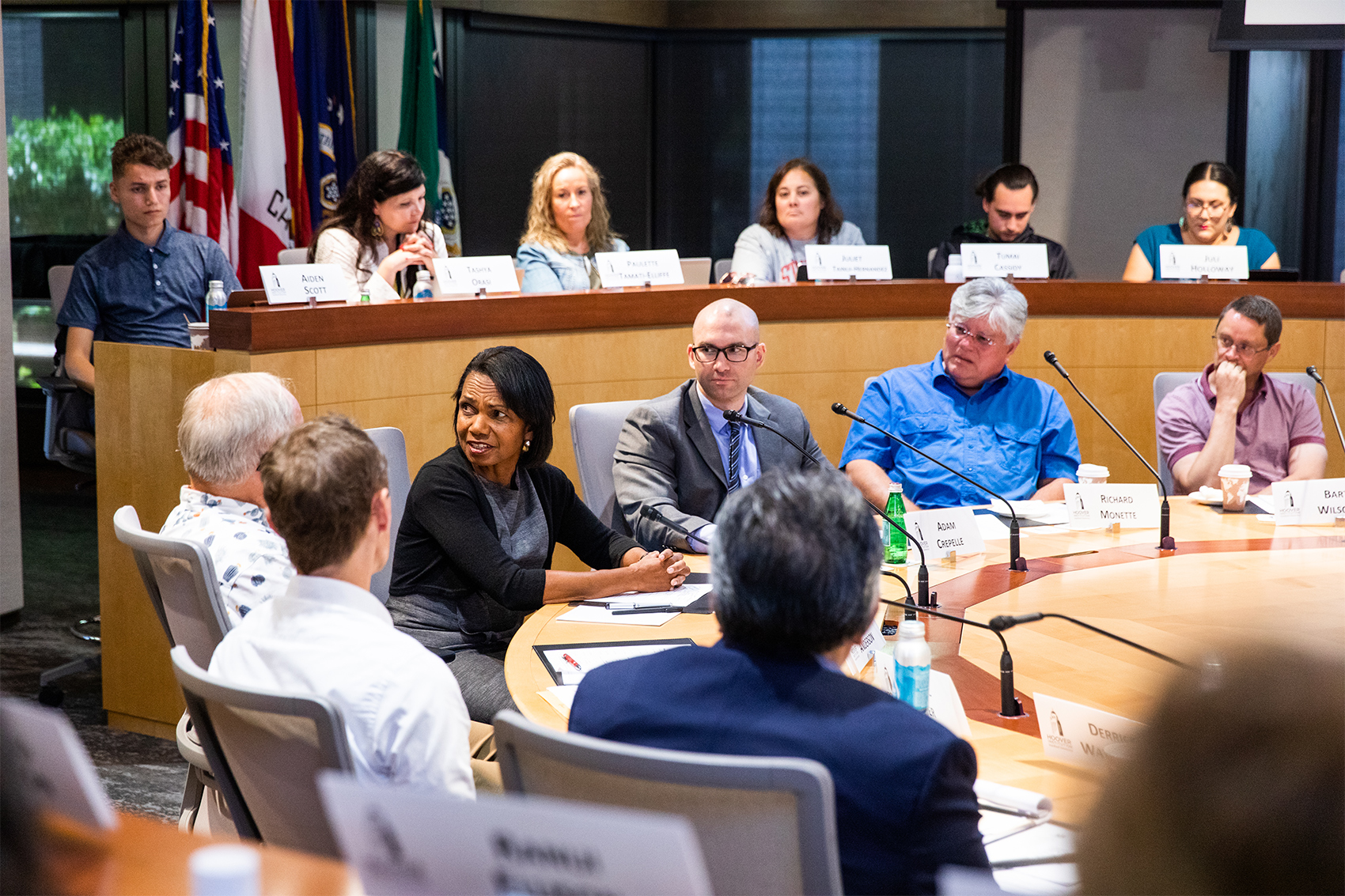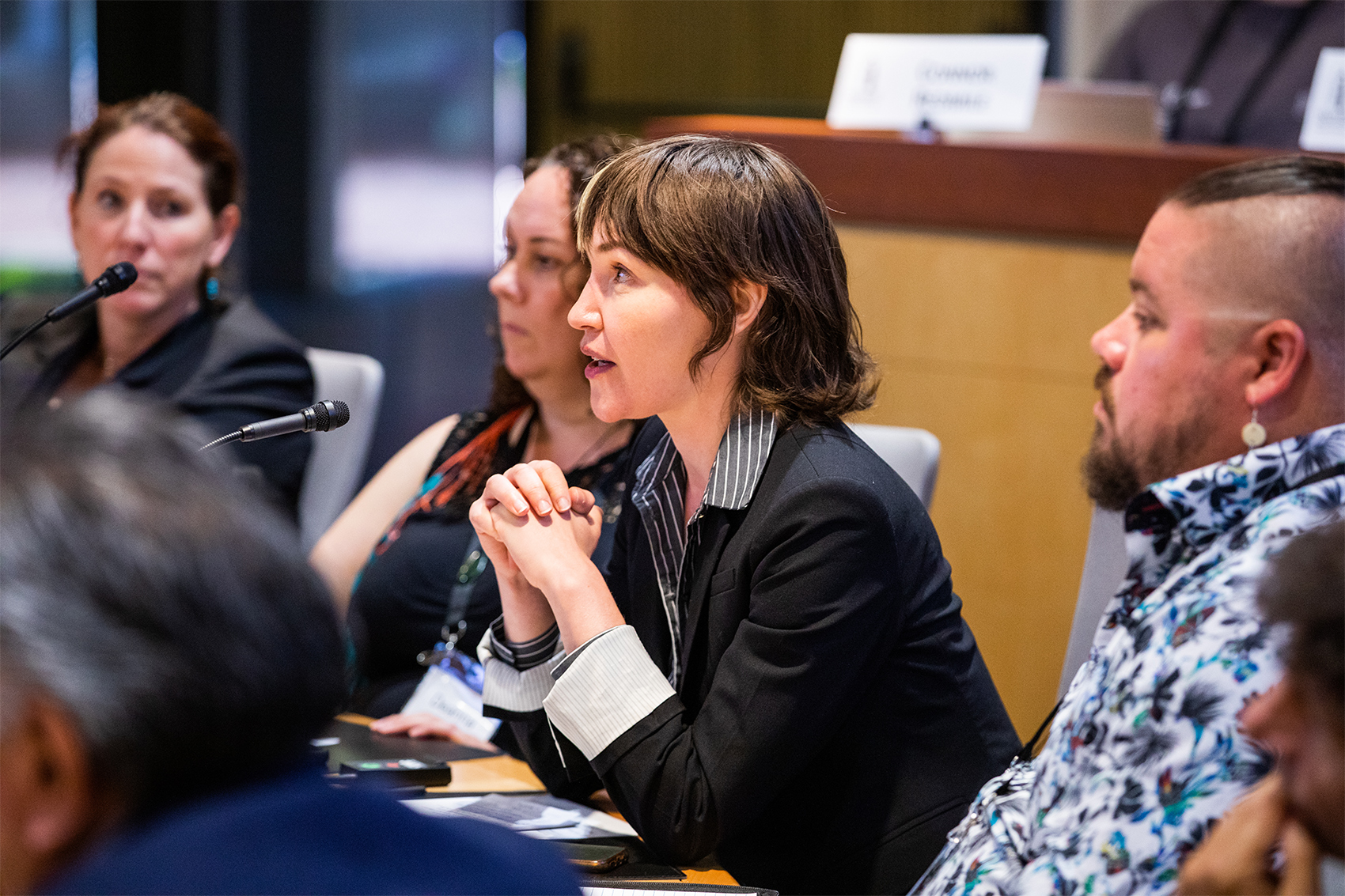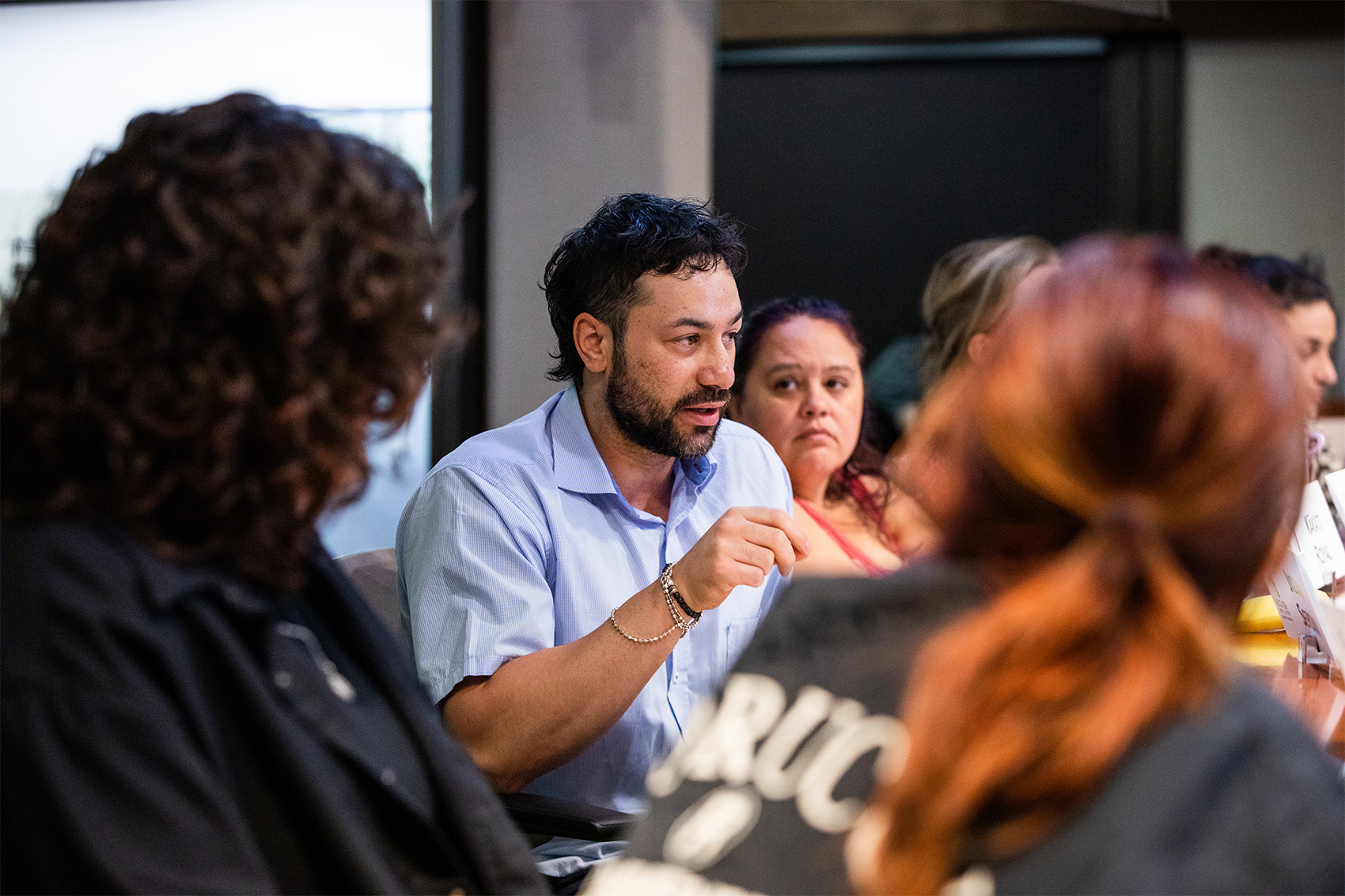Hoover Institution (Stanford, CA) – The Hoover Institution hosted its fourth annual Indigenous Student Seminar from Monday, August 7, to Friday, August 11, 2023, convening high-achieving students and young professionals who aspire to be the next business and tribal leaders of various American Indian nations and other autochthonous communities globally.
The seminar, directed by Daniel Stewart (Spokane Tribe), professor of entrepreneurship at Gonzaga University, is a program of Hoover’s Renewing Indigenous Economies Project, co-led by John and Jean De Nault Senior Fellow Terry Anderson and Ilene and Morton Harris Visiting Fellow Dominic Parker. The project’s mission is to provide data-driven research toward solutions on how American Indians and other native populations across the world can reclaim their freedoms, reestablish self-reliance, and have access to the level of prosperity enjoyed by other free peoples.
The highly selective seminar hosted 31 participants, including college and university students as well as recently graduated young professionals, originating from 33 Indigenous communities in the United States, Canada, New Zealand, and Australia and representing a diverse set of academic disciplines and career interests.
Hoover Institution director Condoleezza Rice gave welcoming remarks to seminar participants, reflecting on how the struggles of indigenous peoples share some similarities with those experienced by Blacks in America. Rice was raised in segregated Alabama, where she wasn’t allowed to share public facilities or sit at lunch counters with Whites in her community. But as Rice noted, those injustices didn’t crush her spirit or that of her family members. She emphasized that the students' pursuit of education is key to supporting their communities. She commented on how her grandfather passed on the gift of transformation through education he himself earned in the hardest of times and against very long odds. She was pleased that the students had chosen to attend the seminar to further their education.
Rice stressed that democracy is not a destination, but a journey, with each generation persevering when faced with challenges, making progress, and passing the baton to the next. She underscored that the Indigenous Student Seminar was a unique opportunity for participants to learn and sharpen practical skills that they can use to improve the conditions of their communities and help their economies thrive.
Presentations began Tuesday with Arizona State University professor of law Robert J. Miller (Eastern Shawnee Tribe) on creating private sector economies in Indian country; Chapman professor of law and economics Bart Wilson on his book The Property Species, which explores why human beings inherently value private property; and University of Wisconsin professor of law Richard Monette (Turtle Mountain Band of Chippewa) on the cultural essence of property and economy. Tuesday also featured a presentation of materials from the Hoover Library & Archive by staff members Chris Marino and Amanda Robb.
Wednesday’s presentations included Loyola‒Chicago assistant professor Adam Crepelle (United Houma Nation) on the popular—and incorrect—belief that Indian cultures were simple, non-commercial, and oriented toward hunter-gatherer culture; Terry Anderson on how American Indians survived and thrived prior to their encounter with colonists and the federal government; Stanford sociology professor C. Matthew Snipp on debates over American Indian identity and the future of what it means to be Indian; University of Victoria associate professor of economics Donn Feir on the economies of Canada’s First Nations; and a question and answer session with Tashya Orasi, an alumna of the 2022 seminar.
On Thursday, André Le Dressay, director of the Tulo Centre for Indigenous Economics in British Columbia, gave a two-part talk on the political and legal institutions required to create sustainable and resilient indigenous economies for the future. Thursday’s sessions also included a joint presentation by Daniel Stewart and University of Washington professor of business Deanna Kennedy (Cherokee Nation), who explained how American Indians can find success as entrepreneurs by holding fast to their cultural identity; and Derrick Watchman, a Navajo business executive, who provided his perspectives on effective tribal governance and leadership.
On Thursday evening, Manny Jules, chief commissioner of the Kamloops Indian Band (British Columbia), provided dinner keynote remarks on the importance of local governance rather than federal jurisdiction for First Nations economies.
On Friday, Dominic Parker gave a presentation on what data reveals about the potential of Indigenous economies and on how students and young professionals can conduct meaningful research.
As the seminar concluded, the students were invited to say a few words about what they learned and what they were taking home to their communities. "Inspired" was the word that resonated around the room. As future leaders, they expressed confidence and renewed hope for being able to build opportunity, prosperity, and self-sufficiency in their communities.
"The inspiration of these students is the harbinger of how the ideas defining a fee society can bring positive change to continents’ first inhabitants,” said Anderson.
“The program offered students—many of whom are first-generation college students—much more than ideas, data, and connections. It gave them confidence to identify economic problems in their communities and the know-how to start pursuing solutions,” explained Parker.
The Hoover Institution Indigenous Student Seminar is made possible by the generosity of the Fred Maytag Family Foundation, the Koret Foundation, and the Gianforte Family Foundation. The application process for the 2024 seminar will open in January. Please check back at Hoover.org for updates.







